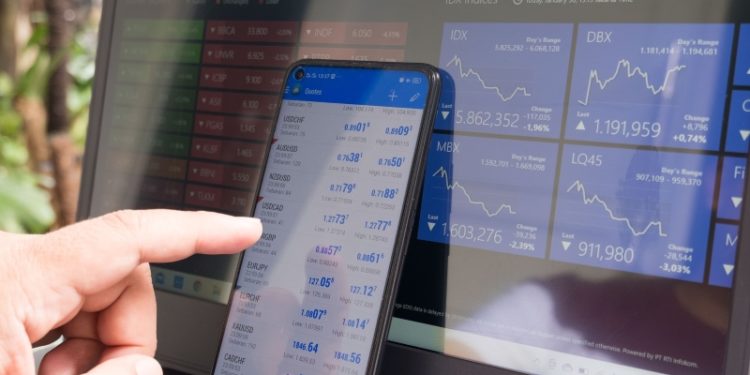Within the intricate issue of this inquiry, the question arises of how do you pay tax on forex in the UK and there is definitely a murky area.
In the United Kingdom, there are three sorts of taxes (income, corporation and capital gains) used to tax earnings from Forex trading in different ways. Forex traders are also grouped into several trader kinds, which might influence how their Forex trading taxes are collected. Some traders also use forex trading bots, similar to the crypto trading bots you find in cryptocurrency.
Assessing the trader’s status, looking at the securities exchange, and determining the approach and goals behind the trading volumes are the first steps in evaluating whether a person will pay tax on Forex trading in the United Kingdom.
This can be perplexing at critical moments, which is why each trader should pursue independent financial advice from a certified public accountant or seek advice with HMRC (Her Majesty’s Revenue and Customs, i.e. the tax office) for assistance, even though many traders report that HMRC is not as helpful as they had dared to hope.
Are Profits from Spread Betting and CFDs Taxable in the UK?
When trading Forex, most Forex firms have a variety of wrappers obtainable. Spread betting and CFDs are the two primary products on the market to consumer Forex traders in the United Kingdom. The sort of instruments you trade that make you money is the second component that comes into play.
Let’s look at how these goods vary and the various tax consequences of trading them in the United Kingdom. Spread-betting is the most straightforward method of trading. For novices, it is also the easier of the two to grasp. You gamble on the price movement at a specified amount per point using spread betting; for example, you bet that GBP/USD will climb at £1 per pip. This form of wager is classified as conjecture or wagering and, hence, exempt from capital gains tax.
CFDs: These are a little more difficult. With CFDs, you position your trades in ‘lots,’ generally worth $10 each pip for a central currency pair. It’s worth noting that most retail Forex brokers allow trading in mini-lots, equal to 0.01 lots.
Furthermore, in CFD trading, the base currency of your bet is defined by the underlying asset you’re betting on, but in wagering, all bets are priced in the base currency of your account. When turning your gain or loss back to the native currency of your account, most Forex brokers supporting CFD trading enforce an additional trade, which adds another dimension to your profit or loss.
For instance, if your account’s base currency is GBP and you earn a gain of 10,000 Japanese Yen, your broker would usually credit you with the Yen profit at the end of the day, translating it into GBP at the current GBP/JPY rate. Since CFDs are frequently purchased with a longer time horizon than spread betting, a CFD position is considered ‘capital’ and is thus ordinarily liable to capital gains tax.
Is Forex Trading Tax-free in the UK?
After extensive investigation on how do you pay taxes on Forex in the UK, we can determine that if you are spread betting in the United Kingdom as an inexperienced trader, any earnings you make from Forex trading will not be subject to a tax demand from HMRC.
Compared to the EU and the United States, the UK’s tax policies for Forex traders are regarded as the softest worldwide. Considering that over 70% of all retail Forex traders take a loss, it’s simple to see why HMRC wouldn’t want these losses adjusted against income from other sources, which explains why they haven’t moved towards a wholly legal stance.
How much tax do Forex traders pay in the UK?
Forex traders who are deemed to be liable to personal taxation on their trading profits in the United Kingdom are taxed according to their applicable income tax rates or capital gains tax. Interest payments and earnings from trading as a business are likely to subject to income tax (ranging from 20% to 45%). Still, other taxable profits are generally taxed as capital gain (at 10 per cent or 20 per cent ).
Conclusion
Although you may be sure of how you should be taxed on your Forex trading income as a UK domestic taxpayer, HMRC may disagree and seek more specific details to reach a conclusion.
This is why it is essential to seek the opinion of a competent accountant or tax expert, especially if the facts do not look straightforward. If you believe it is not worth the time and money because your earnings are little, set aside the taxes you would pay in the worst-case situation so that if you do receive a bill from HMRC, you will be able to pay it.
We hope that we were able to help you understand the main question behind this study, “How do you pay tax on Forex in the U.K?” If not, feel free to leave a comment below and our team will get in touch.
David Prior
David Prior is the editor of Today News, responsible for the overall editorial strategy. He is an NCTJ-qualified journalist with over 20 years’ experience, and is also editor of the award-winning hyperlocal news title Altrincham Today. His LinkedIn profile is here.


![7 Best POS Software in the UK [2026 Edition]](https://todaynews.co.uk/wp-content/uploads/2026/02/7-Best-POS-Software-in-the-UK-2026-Edition-360x180.png)









































































